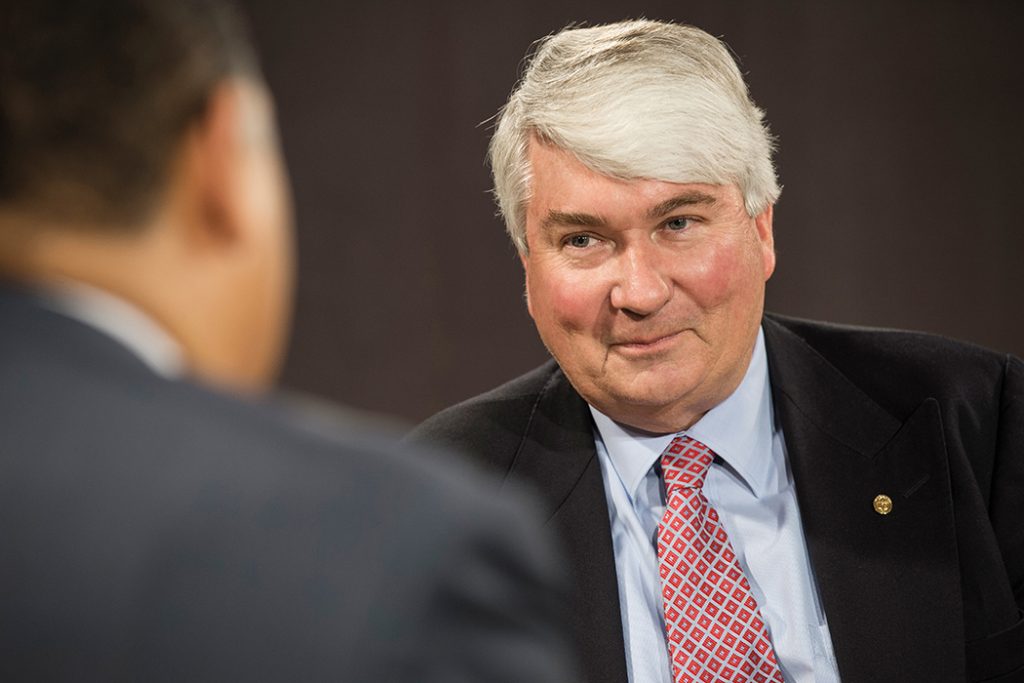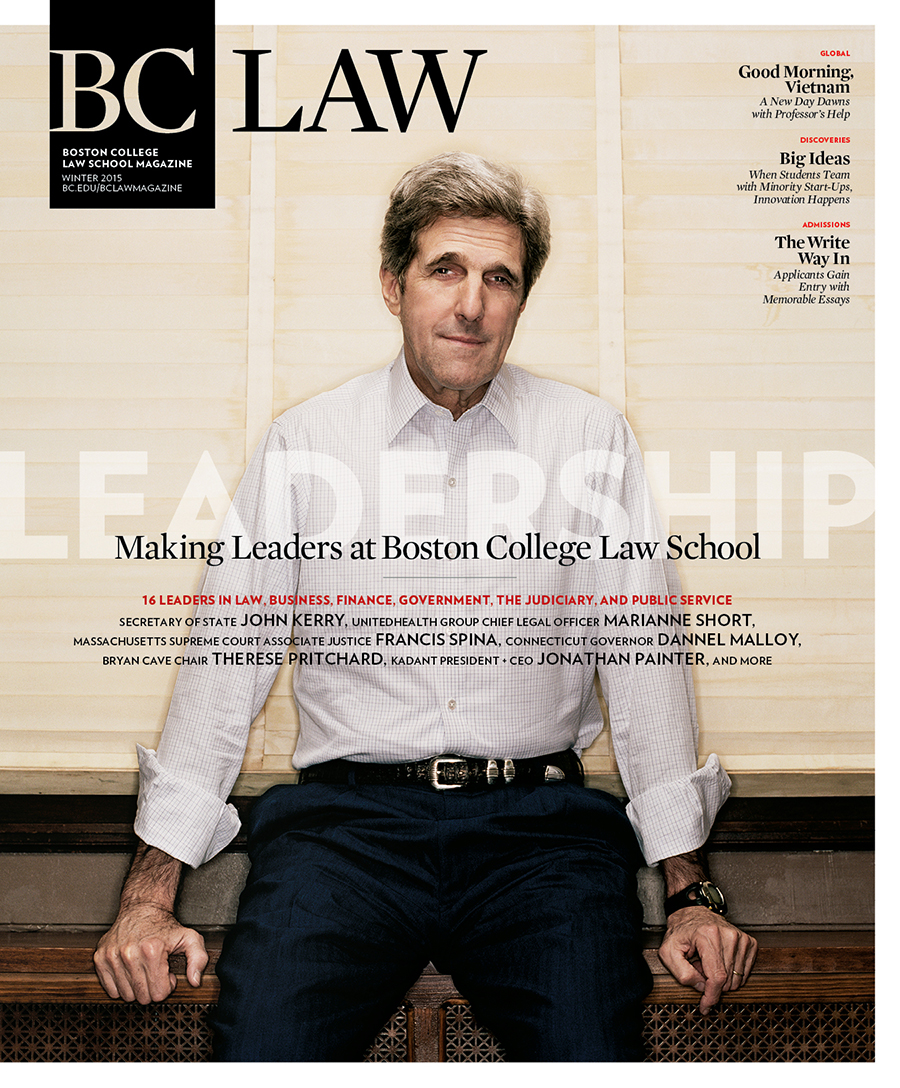The following are edited excerpts from a conversation between Dean Vincent Rougeau and Australian scholar and Gasson Chair Frank Brennan, SJ. Father Brennan is a law professor at Australian Catholic University and an adjunct at Australian National University College of Law and National Centre for Indigenous Studies. He is an Officer of the Order of Australia for services to Aboriginal Australians. The National Trust has classified him as a Living National Treasure.
VR: It’s wonderful to host someone from the Jesuit community from abroad because it furthers BC Law’s global engagement goals. The faculty feel they’re part of a broader discussion and students benefit from hearing about issues from a different perspective. For example, the fact that Australia doesn’t have a bill of rights certainly provides another point of view about jurisprudence.
FB: I had a Fulbright at Georgetown University twenty years ago and sat in on a course with Father Bob Drinan. He used to turn to me and say, “How are things done in Australia?” because we didn’t have a bill of rights. It’s good to come to the home of the Bill of Rights and reflect on your jurisprudence here. Sometimes I think it’s good that the judges don’t always have the final say. But we definitely do have a deficit, where the issues don’t get agitated with the same sort of determination.
“Being on a steering committee with members of NGOs is a big task. It’s more a work of hope than optimism as we try to find common ground about economic justice and inequality. —Gasson Chair Frank Brennan, SJ
VR: Do you notice issues that might be the same in both countries but that come to the fore differently in the legal system of each? How typically might the lack of a bill of rights affect that?
FB: One of the live issues in the United States is physician-assisted suicide. In the US, you expect that the Supreme Court will give the definitive decision. In my country, we recently had a Senate inquiry into physician-assisted suicide. It will be politicians, rather than judges, who have the final say. But the good thing about turning to jurisprudence in countries like the United States and Canada is that the refined arguments reached in the courts will eventually be fed into the political process.
VR: Another prominent issue in both our countries is immigration. I have spent some time down at the border. It was wonderful to have the opportunity to be with those men, women, and children who are risking everything to come to this country. But within the legal, cultural, and political debate here, it’s been challenging to say how this nation is going to handle what is really a humanitarian crisis.
FB: We found the same in Australia. Even though we are an island nation continent and don’t have any land borders, it’s become a very toxic debate in Australia. Refugee advocates will say what government is doing is contrary to the spirit of the UN 1951 Refugee Convention. Government will reply it’s complying with the letter of the convention. ‘The spirit’ versus ‘the letter’ becomes a proxy for what is really required, which is a mature debate about what’s decent and indecent in terms of dealing with people who present at our borders. Public morality is not the exclusive province of international lawyers.
VR: The United States has a tradition of surges of immigrants throughout our history. But I know that diversity in that sense is relatively new to Australia. How has that affected the debate?
FB: We’ve become a multicultural society, and that’s a good thing, but, sadly, because we have a very organized migration program, where there are quotas on various parts of the program, that means that for every person who presents successfully seeking asylum at the border without a visa there is one less place in the humanitarian quota for people in need who could never access Australia on their own.
VR: The huge influx of unaccompanied children to America in 2014 has changed the legal debate over immigration here. Even in Massachusetts, a state that has typically been welcoming and open to immigrants, there’s been push back to the idea of unaccompanied minors staying here. That’s evidence as to how complex and emotionally toxic the issue has become.
In the case of children, everyone can usually find common ground to take care of these kids. But the reality is, it’s expensive and there are no resources to do the job properly. At some point, people throw up their hands and act badly.
FB: Justice of all kinds is hard to achieve these days. I served on the C20, the organ for engagement by civil society with the G20, that met recently in Australia. We were exploring the real impact that civil society has on such a meeting of world leaders, especially when their agenda is so tightly focused on economic growth and taxation reform.
To spend a year on a steering committee with members of NGOs [nongovernmental organizations] is a big task. It’s more a work of hope than optimism. But the members are trying to find common ground about economic justice and inequality.
To view the full interview with Dean Rougeau and Professor Brennan, SJ, go to bc.edu/lawmagvideos.



